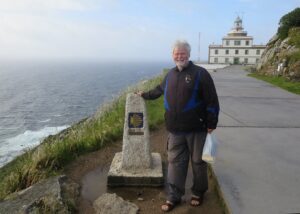Lately I’ve had a lot of trouble concentrating. This past week I have spent far too many hours staring at my computer screen without much progress being made. When this happens, I find myself staring at my to-do list, expecting things to take care of themselves, and being surprised when, at the end of the day, I can’t cross anything off that list.
What finally busted me out of my summer haze, though, were our squash plants. A while back, my husband Ian and I moved into our new house on the farm. The year I planted my first garden, I learned a few lessons:
- Squash plants are prickly.
- If you plant your pea fences too close together, they will grow together—and good luck getting at the peas in the middle!
- If you plant your squashes too close to your pea fences, they will climb the fence and attempt to pull it down. You’ll have to prune them, and when you do, be careful because those suckers are prickly.
- Maybe don’t plant all your lettuce and greens at once, unless you plan to eat like a rabbit for about two weeks.
- Squash plants are, believe it or not, surprisingly prickly.
The moral of the story is: When in the garden I should probably wear shoes. Or, I suppose, it could also have something to do with learning from mistakes.
Prickly squash plants aside, it was getting outside and getting some dirt under my nails that I needed to get my week back on track.
Our passage from Ephesians 4:1-16, which I really enjoy in the First Nations Version, reminds us that in life we are on a journey. At the end of that journey, we will be mature human beings, no longer tossed about by the waves and following every voice we hear. We will walk the truth with Christ, the Chosen One, on the path of love.
But we have a bit of a way to go before we get there. We still make mistakes; we are not yet mature human beings fully reflecting Christ.
I borrowed the title for this sermon from Arthur Paul Boers’s book on pilgrimage, The Way is Made by Walking. He writes about his pilgrimage on the Camino de Santiago in Spain, walking 800 kilometres in 31 days. A significant kind of walk to go on! What I enjoyed most about the book was his openness about the challenges—the literal and metaphorical ups and downs of journeying that far.
As Boers walked those miles, sometimes alone, often with other pilgrim walkers, there were days the path was so intense it was all he could do to keep putting one foot in front of the other. On those days, he hoped no one would try to strike up a conversation. But then there were days when a comment from a stranger or view of a church on a hill would make him so absolutely certain of God’s presence that he could not imagine being anywhere else. He sums up his journey this way, “It was incredibly hard, and very good.”
The meaning of walking
In Scripture walking is often used as a metaphor for faithful living. The Bible repeatedly reminds people to walk in God’s ways: “Therefore, keep the commandments of the Lord your God, by walking in his ways and by fearing him” (Deuteronomy 8:6).
Isaiah 40:31: “But those who wait for the Lord shall renew their strength, they shall mount up with wings like eagles, they shall run and not be weary, they shall walk and not faint.”
And in Micah we read: “He has told you, O mortal, what is good; and what does the Lord require of you but to do justice, and to love kindness, and to walk humbly with your God.”
In the letters to the early church there are many references to walking in love, walking by faith, walking in truth, and walking in darkness or light. These are references not to the physical act of putting one foot in front of the other but to the spiritual life of faith.
Walking is such a lovely metaphor for our faith. Augustine, one of the saints of the first century, said of God, “You made us for yourself, and our hearts find no peace until they rest in you.” From the very beginning, Christians knew that there was a journey, a destination, and that our call was to walk faithfully towards it.
Hebrews 11 speaks of this destination: “They confessed that they were strangers and foreigners on earth, for people who speak in this way make it clear that they are seeking a homeland.”
We are in the already-not-yet, living in a world we have been called to bless, but knowing that this world, this land, is not our home; it is not our final destination. This is a difficult path to walk; we have to pack the right things, something that comes easier to some than others.
I have family friends who go on a six- to eight-week trip every winter, packing only what they can carry on their backs. They have packing down to a science, accounting for every square inch and ounce. They are also two people whose faith and faithful living
I greatly admire.
Packing is a life skill. Ian and I were up in Missinipe for a four-day canoe trip last weekend and, for the first time ever, I think I packed just right. And it was not with a small amount of pride that I noticed that Ian and I were also the lightest packers of the group. (It’s the little victories in life!)
What to pack
Packing also makes a nice metaphor for our spiritual walk. Ephesians tells us we need a gentle and humble spirit, taking love, respect and peace along with us to walk faithfully. But, most importantly, on this path in the great circle of life, we need to make sure we pack bread and water—perhaps the most significant metaphors of all.
The Gospel reading today comes from John 6:24-35. At the start of the chapter is the story of Jesus feeding the five thousand, when he provides people with physical nourishment. But now he wants them to realize that he offers more important things: “I am the bread of life. Whoever comes to me will never go hungry, and whoever believes in me will never be thirsty.”
What Jesus offers endures forever. There is no expiry date, and it feeds us at our very core. It nourishes and sustains the image of God that exists in every one of us.
I once came across a quote that has stuck with me: “Look into the world, and you will find something of him who made it.” I think that holds especially true for us as people. We are the image-bearers of God. And in Jesus we have been given the bread and the drink we need to help that image grow and thrive within us.
What does it look like to walk as image-bearers of God? Ephesians 4:3 says: “Let the Spirit weave you together in peace as you dance in step with one another in the great circle of life.” Leaving the jokes about Mennonites and dancing aside, I believe this passage is telling us that, as we walk towards the path of love, the way is ultimately made by walking together.
When we walk together, we are not only challenged to show Jesus to the ones beside us, we are also challenged to recognize Jesus within them. He is the way, the destination, the companion, and the nourishment. Life, our life, the life of the world—it all begins and ends with Christ.
Thank goodness, Christ knows full well our humanity. He knows our path will not be straight but will most likely look like a game of snakes and ladders.
Since I began writing this message I’ve been in my garden and have had a few choice words for the squash plants because, funny thing, they’re still prickly, and I still wasn’t wearing gloves or shoes. But on this path of love, we walk toward a God who knows and loves us, whether we are on the path or need to be sent out to the garden for a wake-up call.
This is all part of the journey. Sometimes we find ourselves on the path, or in the weeds, sometimes we’re not 100 percent sure which direction we’re actually going in. But my encouragement to you is to keep putting one foot in front of the other and to walk. Walk literally, walk spiritually, walk with Christ and walk together.
I close with an adapted version of Hebrews 12:1: “Therefore friends, since we are surrounded by such a great cloud of witnesses from Aberdeen, Osler and Warman Mennonite churches, let us throw off everything that hinders, and the judgments and differences that so easily entangle, and let us all together walk with perseverance the path that has been marked before us, following the footsteps of the loving Christ who sustains us every step of the way.” Amen.
Kirsten Hamm-Epp is the regional church minister for Mennonite Church Saskatchewan and is currently on parental leave. Adapted from a sermon she preached at a joint service of Aberdeen, Osler and Warman Mennonite churches, on Aug. 5, 2018.
For discussion
1. If you were planning a pilgrimage, a walk on an unfamiliar trail to think about life, where would you go? What would be the advantage of walking a traditional pilgrimage such as the Camino de Santiago in Spain? Would you make a pilgrimage on your own, or in company with someone?
2. If you were planning a long walk, what would you carry with you? What items can quickly grow heavy if the journey is long? How do you decide what to pack?
3. Kirsten Hamm-Epp identifies some things that are important to carry on a spiritual journey—love, respect and peace. What are some things that should be left behind? What is your best source of nourishment on your spiritual journey? What role do others play in your journey?
4. Many people enjoy walking where the beauty of nature is evident. What role does the created world play in your spiritual journey? What can we learn from the prickles on a bountiful squash plant?
5. Hamm-Epp writes, “Sometimes we find ourselves on the path, or in the weeds, sometimes we’re not 100 percent sure which direction we’re actually going in.” What scripture passages can be helpful in this situation?
—By Barb Draper








Leave a Reply
You must be logged in to post a comment.